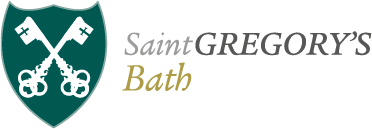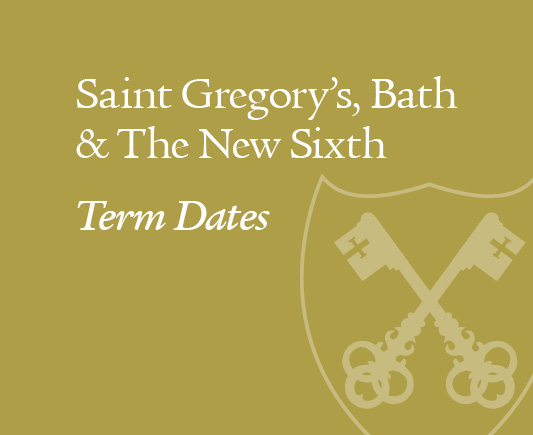Head of Department: Mrs J Lemée-Wright
Level of teaching: Key Stage 3, Key Stage 4
Through learning a language you gain a better understanding of how people in another country live – their customs and attitudes, how they do things. The more we understand and respect people in other countries, the greater the hope for world peace.
Despite Britain’s departure from the European Community, command of a language has become more useful than ever in a variety of fields, e.g. commerce, industry, science & technology and travel.
Studying a language also helps to develop your general mental ability – it demands of you to listen carefully, to think exactly and to examine things in detail.
In Year 7, students have the opportunity to study two languages from French, German, Spanish and Mandarin Chinese. Additionally, students can apply to join the Mandarin Excellence Programme (MEP) providing accelerated learning opportunities in this global language. A small number of students, identified by the school, will only do one language (Spanish) in order to support them with their English and Maths.
In Year 8, students continue to study their two languages alongside the MEP programme, where appropriate.
In Year 9, students continue to study their two languages. At Key Stage 4, MFL are provided as part of our broad and balanced curriculum offer with all four languages offered as part of the options process.
Key Stage 3 (Years 7-9)
Students study a broad and varied language curriculum, which is assessed in the form of the end of module tests. Other tests may be undertaken as and when considered appropriate, for example to ensure students have a strong grasp of vocabulary. Assessment information is used by staff to monitor progress and to inform planning. By the end of KS3 students will learn how to write and speak in at least three tenses.
We aim to nurture a love of languages by incorporating a variety of cultural aspects in our teaching, as well as creative lessons such as creating and practising songs, rhymes, raps and role plays. At the end of Year 9 an overall level is given for each student. This is based on performance in end of module assessments and on-going teacher assessment.
Terms 1 & 2
Greetings (hello/goodbye)
Saying how you are today
Days, months of the year (date)
Numbers 0 to 100
Saying how old you are and others
Talking about birthday
The Alphabet and how to spell
Terms 3 to 4
Talking about brothers and sisters and introducing with names
Talking about pets (including names)
Giving information about family members
Using to be and to have with all pronouns
Giving information about family members and pets: personality/character description of self and family members
Using intensifiers with adjectives
Introduce opinions and reasons (re-using adjectives) to give preferences/opinions on family member/pet
Develop opinions with A mon avis/ je pense que)
ER verbs AIMER/ DETESTER to give opinions about pets/ family members and justify
Terms 5 to 6
Talking about subjects at school
Expressing opinions and justifying
Re-use verbs AIMER/ DETESTER/ ETUDIER to strengthen endings of er verbs in present tense
Learn time
Learn activities after school using verbs ALLER/ FAIRE (irregular)
Year 8
Terms 1 & 2
Where do you live : countries
areas
Places in town
Weather using IF and WHEN
Revisit verbs to express activities we do in the house and with weather
Learn Depuis and present tense
Terms 3 & 4
Hobbies
Sports, TV, music, cinema
Consolidate what we are doing
Study near future
re-use weather, rooms to express what you are going to do
Terms 5 & 6
Re-inforce all activities within the house and around in the past tense as well as present and near future
Consolidate to be and to have
Study the past tense
Year 9
Term 1
Learn about different type of books
Learn about different programs on TV and different sorts of films at the cinema
Giving opinions and justifications about films/books/tv programs
Use tenses to discuss past, present and near future plans in terms of TV and cinema
Talking about what you read (sort of books), read and are going to read
Talking about music you listen to, listened to and are going to listen to
Talking about future plan using the simple future
Talking about predictions about their future
Talking in the future about self and others
Discuss future career
Understand the importance of languages in the future.
Term 2
Talking about what you used to do: study the Imperfect
Compare with now
Develop listening skills
Discuss life now, past, and future
Term 4
consolidate all tenses seen
Study of the film ” La rafle”
Terms 5 to 6
Talking about parts of the body and where it hurts
Talking about illnesses and more injuries
Discuss how you got those problems
Talking about remedies
Giving advice and understand them
Discussion at the doctor
Talking about healthy living
Talking about sport (now, before and in the future
Expressing opinions and justifications about healthy living
Discuss in the past, present and future what do you do to be healthy
Talking about the dangers of drugs, alcohol and cigarettes/ addictions
Focus on Grammar:
revision of all tenses in French (present, two futures, conditional, imperfect, past perfect, imperative)
Gender, adjectives and adverbs
Modal verbs
Reflexive verbs
Key Stage 4
Course Code: GCSE French AQA 8658
Exam Board Specification: http://www.aqa.org.uk/subjects/languages/gcse/french-8658
Students are required to sit the four skills: listening, speaking, reading and writing in June of Year 11.
The new AQA GCSE French course is divided into three main subject areas called themes. Each theme is divided into four topics. So the GCSE is made up of 12 topics altogether to be studied over Years 10 and 11 and is examined in four exams which take place at the end of the course.
Themes and Topics:
Identity and culture
Me, my family and friends
Technology in everyday life
Free-time activities
Customs and festivals
Local, national, international and global areas of interest
Home town, neighbourhood and region
Social issues
Global issues
Travel and tourism
Current and future study and employment
My studies
Life at school/college
Education post-16
Jobs, career choices and ambitions
Each skill (listening, speaking, reading and writing) is now worth 25%
Two tiers of examination are offered: Foundation and Higher. Candidates can only be entered for one tier.
Key Stage 5 (Years 12-13)
This course is not studied at Key Stage 5.






